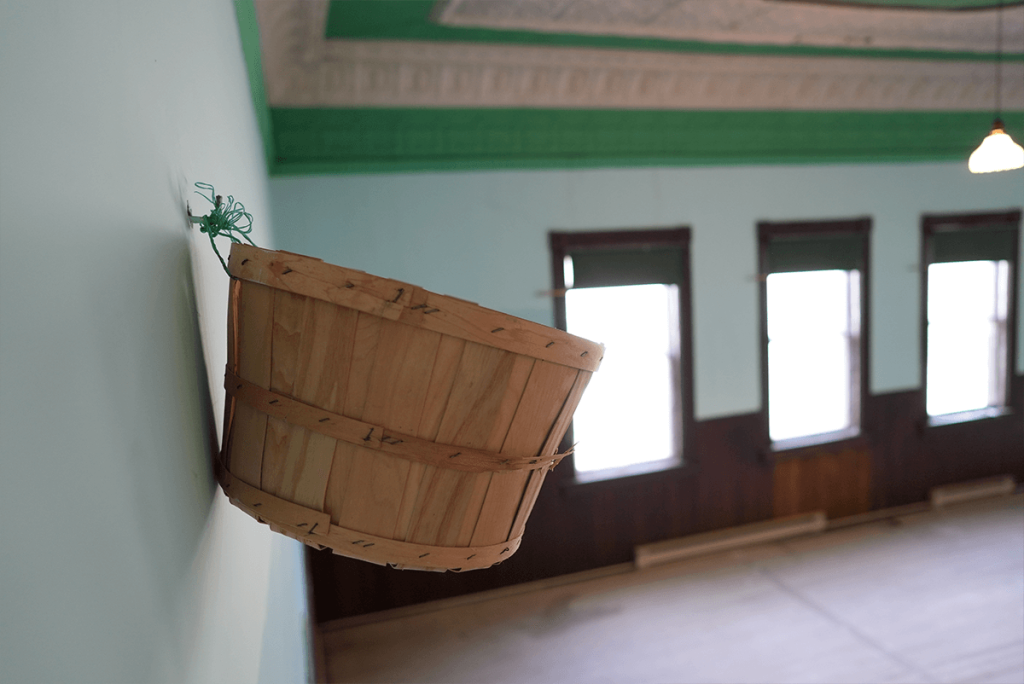Canada’s obsession with ice hockey is well known, but a small town in the Maritime provinces wants the world to know that the country also has a deep history with basketball.
What is described as the world’s oldest surviving basketball court was recently discovered in a former YMCA building in the U.S.-Canada border town of St. Stephen, New Brunswick. A civic group hired the architecture firm CambridgeSeven in greater Boston to create designs for a potential museum focused on the 132-year-old court, and the group is now raising funds from private sources.
Business leaders and elected officials think the historic court could become a tourist draw for the small town, said Timothy Mansfield, a principal and CEO at CambridgeSeven.
“This is going to be an attractive destination to a lot of folks,” Mansfield told CoStar News.
A surge of vacationers passes through St. Stephen during the summer, on U.S. Highway 1 and New Brunswick Route 3, heading to beaches and islands along the Atlantic Coast, Mansfield said. St. Stephen is about 70 miles west of Saint John, the second-largest city in New Brunswick, and 96 miles east of Bangor, Maine's second-biggest population center.

Motorists passing in either direction need to slow down in St. Stephen anyway for the U.S. Customs and Border Protection facility or the Canada Border Services Agency facility. St. Stephen is directly across the St. Croix River from Calais, Maine.
“It’s on the route to Nova Scotia and other points north, and they get lots of people traveling through St. Stephen,” Mansfield said.
Link to sport's founder
James Naismith, a native of Almonte, Ontario, is credited with inventing the game of basketball in 1891 at the YMCA in Springfield, Massachusetts, as a way for kids to get exercise during the winter. Lyman Archibald, an associate of Naismith, moved from Springfield to St. Stephen to work for the YMCA there.
Under Archibald’s direction, the basketball court was built and the first game played in October 1893. The YMCA was later converted to other uses, and the basketball court’s existence on the second floor was unknown for decades until 2010, after a fire damaged portions of the building.

Historians and timber forensic specialists have examined the court, the building and the circumstances and confirmed the details, according to World’s Oldest Basketball Court, the organization leading the museum development.
CambridgeSeven’s design has not yet received final approval, but Mansfield said the firm’s concept is for an “experience center” rather than a museum. The Cambridge, Massachusetts-based firm was chosen for the job because of its long résumé designing sports-related properties.
The firm’s past projects include a renovation of the Naismith Memorial Basketball Hall of Fame in Springfield; Canada’s Sports Hall of Fame in Calgary; and the Boston Bruins ice hockey team’s museum at TD Garden arena.
“In the sports heritage world, a museum has a connotation of the history of the players, the games and artifacts,” Mansfield said. “The folks in New Brunswick wanted this to be more of an active place for kids and parents to come and learn about the game and see where the modern game came from.”
Walk on court
In its conceptual design, visitors will be able to walk on the basketball court, rather than seeing it from behind ropes. The court has substantial damage after decades buried under carpet and other construction additions, but it can be repaired, Mansfield said. A polyurethane coating would be applied after the repairs, allowing visitors to step on it.
The center would also include interactive exhibits using augmented reality and artificial intelligence.

“We could create a ‘be the coach’ experience or have an experience of running out of the tunnel and into a basketball arena,” Mansfield said.
Lord Cultural Resources, a Toronto-based consulting firm, conducted a study for the museum’s organizers to assess the feasibility of such a project in the small town. Mansfield said the group found that it would be a viable tourist destination.
World’s Oldest Basketball Court has secured funding commitments from national and provincial government agencies and is raising money from private-sector sources for financing needed to start construction.
The effort’s projected cost is about $18 million, according to Acadia Broadcasting. Organizations that have partnered in the effort include several local family foundations and TD Bank.
